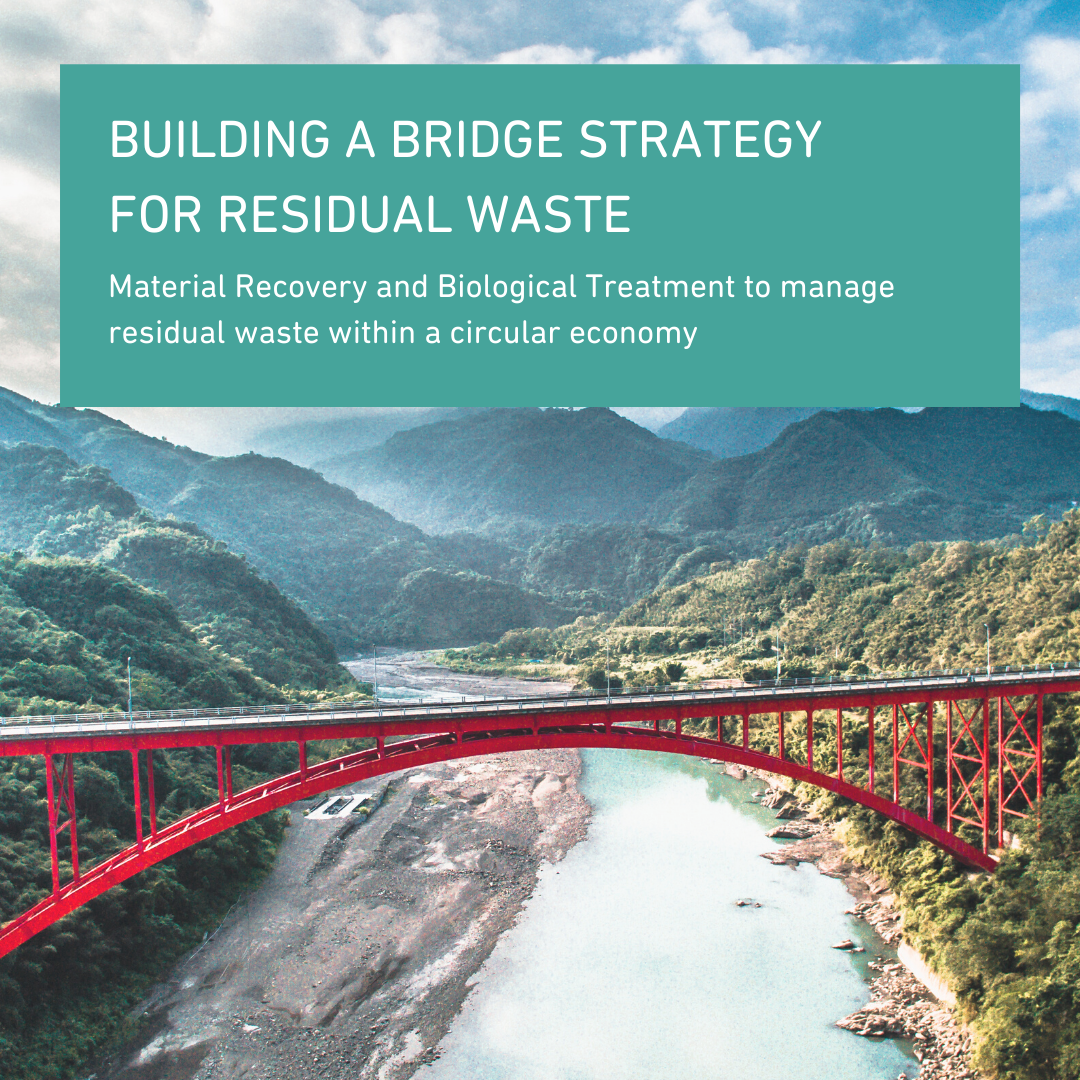Press Release: Building a bridge strategy for residual waste. Material Recovery and Biological Treatment to manage residual waste within a circular economy

FOR IMMEDIATE RELEASE: Brussels, 3rd June 2020
Zero Waste Europe (ZWE) released today a policy briefing which highlights the importance of defining a new strategy for managing residual waste that corresponds with the requirements of the age of climate emergency that we are living in.
The report defines an approach based on Material Recovery and Biological Treatment as a bridge strategy for managing “residuals” (1) within a circular economy.
The circular economy vision is all about preserving materials and resources in the system, minimising the so called leakages, such as landfilling and waste incineration. The Circular Economy Roadmap and the EU Landfill Directive also require proper consideration for the management of residual waste.
The current over-reliance on incineration has contributed to a lock-in effect in waste management systems which prevents proper recycling (2) and makes climate change worse (3). This practice also undermines the efforts of the European Union, which seeks to decarbonise the economies of Member States (4).
“The current system for dealing with residuals is outdated and broken. Waste incineration destroys vast amounts of resources, requiring the extraction of new primary raw materials, perpetuating a linear economic model and releasing greenhouse gases from fossil based materials such as plastic. This practice contravenes the strategic goals of the Circular Economy Package and the EU goal to become climate neutral by 2050.”
Janek Vähk, Climate, Energy and Air Pollution Coordinator, Zero Waste Europe
ZWE proposes a Material Recovery and Biological Treatment (MRBT) system that combines biological treatment (to stabilise fermentable materials still included in residual waste) with sorting equipment (to recover materials which were not targeted or captured by separate collection). This ensures that the negative impacts of residuals are reduced when landfilled, and at the same time keeps the flexibility required to continuously improve the performance of waste management systems.
“We need MRBT as a “bridge strategy” for residuals while we work on maximising separate collection and reducing waste: the strategy must consider options for managing residual waste aligned with requirements of the EU Landfill Directive, and should minimise the climate impacts; at the same time, it must keep the system adaptable to decreasing amounts of residual waste, and increasing tonnages of clean materials from separate collection, which is and must be kept as, the strategic priority.”
Enzo Favoino, Scientific Coordinator of Zero Waste Europe
Equipped with biological treatment systems, MRBT sites would also be able to address current and future COVID-19-like situations such as biological stabilisation, similar to composting, which is perfectly able to sanitise processed waste, thanks primarily, but not only, to the biogenic heat it releases (4).
With this in mind, Zero Waste Europe calls for a dedicated EU strategy for the management of residual waste to align the treatment with the overarching principles and strategic goals of the EU circular economy agenda, specifically including:
- A European Commission Communication on the (marginal) role of Landfilling in a circular Europe.
- A definition for a common EU-wide approach for managing residuals that should include the codification of “pre-treatment” and the goals of biological treatment.
- Compiling an EU-wide survey on technologies that may be used to recover materials from residual waste, and related applications of recovered materials, current initiatives, best practices and biological treatment sites that are already turned into compost sites.
- Support for the transformation of existing Mechanical Biological Treatment (MBT) sites into MRBT sites, and further revamping (partial or total, depending on the situation) of both into compost sites and clean Material Recovery Facilities for clean organics and dry recyclables with dedicated funding programmes.
ENDS
PRESS CONTACTS:
Janek Vahk, Climate, Energy & Air Pollution Coordinator at Zero Waste Europe
[email protected] | +32 (0) 49 355 3779
Rossella Recupero, Communications Officer at Zero Waste Europe,
[email protected] | +39 340 47 39827
NOTES:
- Several reports highlight the presence of recyclables in the so called “residual waste” e.g. Integration of environmental concerns in Cohesion Policy Funds (ERDF, ESF, CF),and The EIB Circular Economy Guide
- EU Taxonomy Report: Technical Annex
- The impact of Waste-to-Energy incineration on climate
- 2050 long-term strategy
- Inactivation of the Coronavirus That Induces Severe Acute Respiratory Syndrome, SARS-CoV